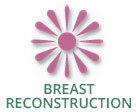Capsular Contracture of Breast Implants
Capsular contracture is an unfortunate complication that occasionally occurs following breast implant surgery, also known as breast augmentation mammoplasty. Simply put, “capsular” refers to the “capsule” of scar tissue that forms naturally around the breast implant. “Contracture” means squeezing or constriction, so when capsular contracture occurs, the body creates a stiff, thick, constricting membrane around an implant, often causing pain, hardening of the breast tissue, shifting of the implant, and/or an unnatural, distorted appearance.
At West County Plastic Surgeons, breast augmentation is one of our primary specialties, and board-certified plastic surgeons Drs. Terry Myckatyn and Marissa Tenenbaum have performed numerous successful breast augmentation procedures. They pride themselves on their meticulous technique, which helps reduce the chance of capsular contracture, as well as their ability to perform breast augmentation revision procedures to help women who have experienced capsular contracture of their breast implants.
To learn more about capsular contracture, or to schedule a consultation for breast augmentation or breast implant revision, contact our office today. Request your appointment online, email us or phone (314) 996-8800
What Is Capsular Contracture and How Can St. Louis Patients Avoid It?
Because a saline or silicone implant is a foreign object, the body naturally develops scar tissue—a thin membrane of collagen fibers—around it. In most cases, this membrane holds the implant in place and keeps it from migrating. In some cases, however, the scar tissue becomes too thick, constricting the implant and causing hard, deformed, sometimes painful breasts, also known as capsular contracture of breast implants.
Preventing it requires teamwork between the plastic surgeon and the patient. Before undergoing the procedure, your surgeon may prescribe preoperative medications, which must be taken as directed. Following surgery, he or she may also recommend massaging the implant, wearing a compression bra, taking oral vitamin E supplements or prescription medications, and so forth. It is important to carefully follow your surgeon’s instructions so that you can do your part to prevent capsular contracture.
At West County Plastic Surgeons, our surgeons take many precautions to prevent capsular contracture. These may include recommending a textured silicone implant or placing it in a submuscular location, both of which may help prevent capsular contracture. Our surgeons also minimize handling of the implant to reduce the chance of introducing bacteria into the surgical area, and they may irrigate with a triple-antibiotic solution. Both of these practices help prevent infection, one of the suspected causes of this problem.
When performing a breast implant revision procedure, Drs. Terry Myckatyn and Marissa Tenenbaum often use bioengineered tissue scaffolding materials to help prevent capsular contracture from reoccurring. An acellular dermal matrix such as Strattice™ or Alloderm® can provide safe, excellent support and reinforcement for the new implant.
How Do I Know If Capsular Contracture Has Occurred?
The severity of capsular contracture is measured using the Baker scale, which includes four grades:
- Grade I: The breast feels soft and looks natural in size and shape.
- Grade II: The breast feels a little firm, but otherwise appears normal.
- Grade III: The breast feels firm and looks abnormal.
- Grade IV: The breast is hard, painful to the touch, and looks distorted or abnormal.
The most common treatment for a Grade III or IV diagnosis is to remove the implant (capsulectomy), create a new pocket, and place a new implant. This is called a breast augmentation revision surgery, and for this procedure it is important to choose a board-certified plastic surgeon with extensive training and experience in this area.
If you are concerned that you might be experiencing capsular contracture of your breast implants, contact West County Plastic Surgeons by requesting your consultation online, emailing us or phoning (314) 996-8800today.
If you have questions or would like to book a consultation with one of the surgeons at West County Plastic Surgery, please call (314) 996-8800.









